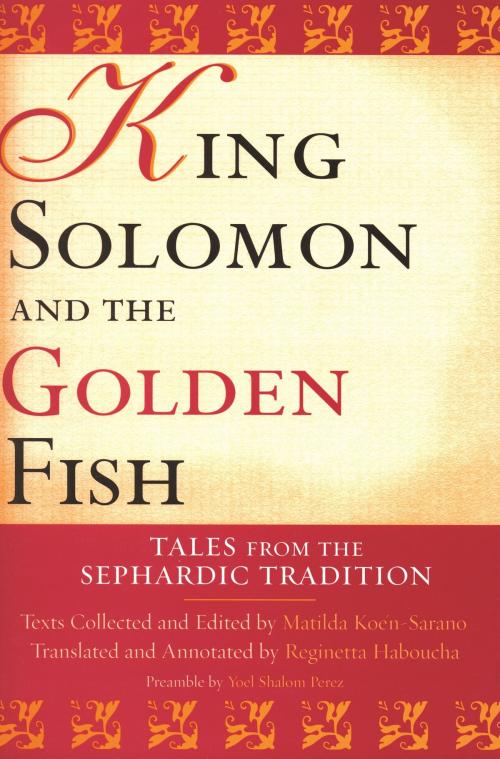King Solomon and the Golden Fish
Tales from the Sephardic Tradition
Nonfiction, Social & Cultural Studies, Social Science, Folklore & Mythology, History, Jewish| Author: | Matilda Koén-Sarano, Reginetta Haboucha | ISBN: | 9780814341872 |
| Publisher: | Wayne State University Press | Publication: | July 1, 2015 |
| Imprint: | Wayne State University Press | Language: | English |
| Author: | Matilda Koén-Sarano, Reginetta Haboucha |
| ISBN: | 9780814341872 |
| Publisher: | Wayne State University Press |
| Publication: | July 1, 2015 |
| Imprint: | Wayne State University Press |
| Language: | English |
Orality has been central to the transmission of Sephardic customs, wisdom, and values for centuries. Throughout the Middle Ages, Spanish Jews were known for their linguistic skills, and as translators and storytellers they were the main transmitters of Eastern/Islamic culture to the Christian world. Derived from a distinguished heritage, Judeo-Spanish storytelling has evolved over a five-hundred-year historical journey. Constant contact with the surrounding societies of the past and with modern Israeli influences, making it more universal than other Sephardic oral genres. Told in order to entertain but also to teach, Judeo-Spanish folktales convey timeless wisdom and a colorful depiction of Sephardic communities up to the first half of the twentieth century. King Solomon and the Golden Fish is a selection of fifty-four folktales taken from Matilda Koén-Sarano’s collection of stories recorded in Ladino (Judeo-Spanish) and translated by Reginetta Haboucha into fluent and idiomatic English that preserves the flavor and oral nuances of each text. Haboucha provides commentary and annotations to the folktales that enlighten both the academic and the lay reader, making this book at once appealing to scholars and enjoyable for the general public. King Solomon and the Golden Fish is divided into six main thematic sections: Supernatural Tales, Tales of Fate, Tales of the Prophet Elijah, Romantic Tales, Tales of Cleverness and Wisdom, and Jokes and Anecdotes. These folktales remain a powerful link between modern-day Spanish Jews and the Hispano-Jewish legacy—this collection passes along that legacy and provides a source of the customs and values of Sephardic Jews.
Orality has been central to the transmission of Sephardic customs, wisdom, and values for centuries. Throughout the Middle Ages, Spanish Jews were known for their linguistic skills, and as translators and storytellers they were the main transmitters of Eastern/Islamic culture to the Christian world. Derived from a distinguished heritage, Judeo-Spanish storytelling has evolved over a five-hundred-year historical journey. Constant contact with the surrounding societies of the past and with modern Israeli influences, making it more universal than other Sephardic oral genres. Told in order to entertain but also to teach, Judeo-Spanish folktales convey timeless wisdom and a colorful depiction of Sephardic communities up to the first half of the twentieth century. King Solomon and the Golden Fish is a selection of fifty-four folktales taken from Matilda Koén-Sarano’s collection of stories recorded in Ladino (Judeo-Spanish) and translated by Reginetta Haboucha into fluent and idiomatic English that preserves the flavor and oral nuances of each text. Haboucha provides commentary and annotations to the folktales that enlighten both the academic and the lay reader, making this book at once appealing to scholars and enjoyable for the general public. King Solomon and the Golden Fish is divided into six main thematic sections: Supernatural Tales, Tales of Fate, Tales of the Prophet Elijah, Romantic Tales, Tales of Cleverness and Wisdom, and Jokes and Anecdotes. These folktales remain a powerful link between modern-day Spanish Jews and the Hispano-Jewish legacy—this collection passes along that legacy and provides a source of the customs and values of Sephardic Jews.















